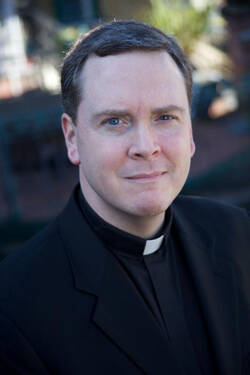Across the street from the otherwise thoroughly middle-class Havana home of Che Guevara, about an eighth of a mile from the enshrined debris of a downed American U-2 flight, stands the Cristo de La Habana, a 66-foot-high statue of Jesus Christ carved out of 320 tons of marble. Bruised and pockmarked by multiple lightning strikes—the first, ironically enough, on the day Fidel Castro triumphantly entered the capital city—the statue depicts Jesus with one hand near his heart, as if he is about to deliver a New World Sermon on the Mount, which makes sense given the statue’s location. From its base, on the highest point in the city, one enjoys a panoramic view of the capital beyond.
Dedicated on Christmas Day 1959 by the Cuban dictator Fulgencio Batista, the work was meant to confirm the position of Catholicism in Cuba’s national imagination. A mere nine days later, however, Che led his victorious column into the capital that Batista had briskly abandoned. Che’s khaki-clad, rifle-bearing band then paid a visit to the new statute and even snapped a few selfies. If the thought ever occurred to them, the largely atheistic rebels knew better than to tear it down: that would have alienated the religious sensibilities of a huge swath of Cubans. So the statue remains where it was unveiled some 55 years ago.
The statue also overlooks the entrance to the port of Havana, one of the busiest intersections in Cuban military history, the site of several clashes between the Old World and the new and eventually the New World and the new. I stood on this bluff for the second time in my life last month during a brief visit to Cuba to attend events surrounding the 50th anniversary of the priestly ordination of the Archbishop of Havana, Cardinal Jaime Ortega y Alamino. Cardinal Ortega’s long life at the dangerous intersection of the church and Cuban politics is aptly described by the title of his best known pastoral letter: “El Amor Todo Lo Espera” (“Love Endures All Things”).
My presence at what amounted to a three-day celebration of the Cuban Church made a lot of sense. America is committed to providing opinion and analysis about news and events at the intersection of the church and the world, the kinds of places in which Cardinal Ortega and his people have labored so courageously. The church and the world, of course, mean much more than the United States, especially for Catholics, who count ourselves in the company of one billion people on five continents. To that end America is making a major investment in our international coverage at a time when the pace of global change has picked up considerably. Take a look at the cover of this issue: a shrinking world and a changing Scotland will proffer more images like that one. That kind of barrier breaking is welcome and vitally needed, of course—even if, in my judgment, Scottish independence is ultimately a fool’s errand.
In the end, we know, there is only one path to the true peace we seek; and it is not an ideology or nationalism of any kind, but rather a person for whom love, forgiveness and justice are the only standards of human action. Cardinal Ortega made a similar point in his homily at the closing liturgy. He reminded his people that the day was not about him, nor even about them, but that the day belonged to the Lord. They got it. At the end of the liturgy, as we recessed into the fierce August sun, I caught a quick glimpse of the Cristo de la Habana just as the music of a German-born British subject, G. F. Handel, rose from a thousand Latin voices, a powerful reminder to the church and the world that the alabaster figure overlooking their city represents the true “Lord of lords” and “King of kings. And he shall reign forever and ever.”








